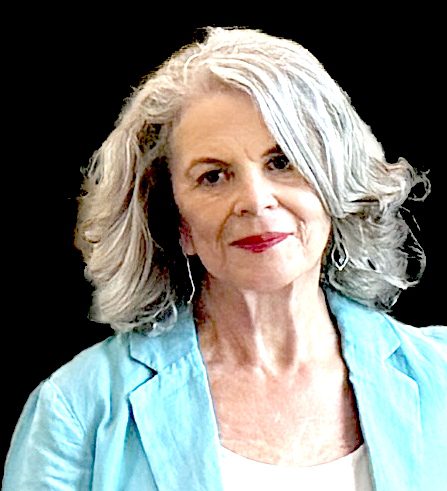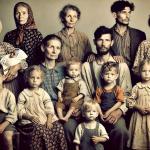The right-wing religious world appears to be populated by those who sincerely want to base their lives on what the Bible states and also to bring to the world around them a political system based on biblical values. It all sounds good, holy, so very right.
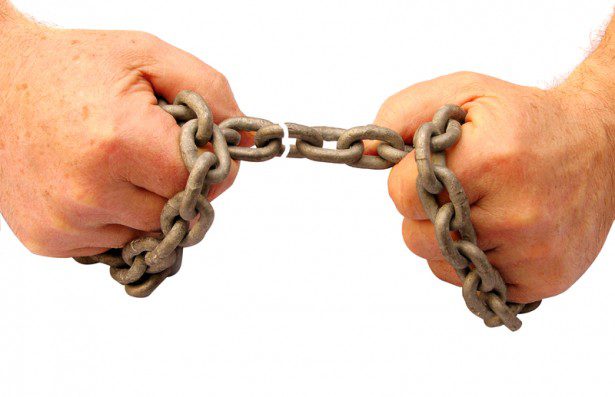
Dear Thoughtful Pastor: To say the right-wing religious world wreaked havoc with my spiritual life would be an understatement. It has been several years since my wife and I made our exit from that world and we still have not recovered. I still have anger and bitterness that I deal with. Unfortunately, we live in the deep south in a small rural community which is dominated by religious right.
How were you able to overcome and deal with your transition away from that world? How are we to get a real handle on the real truth of the Bible and not the literalistic approach? The religious right infects everything it seems from church to politics. Sometimes we read articles in our local paper that are so outrageous and so wrong I feel compelled to respond but then we run the risk of alienating friends and neighbors. If you are not part of RR here you are faced with problems.
Would appreciate your thoughts and any good books you might recommend particularly on scripture.
The right-wing religious world appears to be populated by those who sincerely want to base their lives on what the Bible states and also to bring to the world around them a political system based on biblical values. It all sounds good, holy, so very right.
I lived it, sought to serve it, and devoted my life to studying the Bible. I learned Greek and Hebrew, read theologians, sought to master the texts so I could speak with knowledgeable authority and say, “This is the what the Lord has said.”
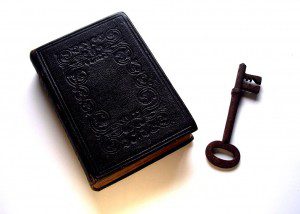 But your question takes me to a dark, terrifying part of my life. I realized that it just didn’t work. My studies had made it clear: I could no longer see the Bible as an inerrant text with specific directions for today.
But your question takes me to a dark, terrifying part of my life. I realized that it just didn’t work. My studies had made it clear: I could no longer see the Bible as an inerrant text with specific directions for today.
But my life revolved around that world. To leave meant leaving behind my identity as a good Bible-believing Christian woman.
To stay meant I would have to lie with every breath.
I very nearly destroyed myself over this giant mental/spiritual disconnect. Suicidal, under intense pressure to stop thinking, I internalized that cognitive dissonance. My body echoed the dissonance, turning upon itself in various auto-immune ways.
I left. I chose life over death, the hardest thing I have ever done. Others have left. Most keep the pain private. We converse in secret groups, offering support and compassion. Our losses load us with grief.
I continued reading and studying the Bible. It offered me far more when I quit looking at it as a book of answers to questions facing modern societies or something with the final words about the nature of God. Instead, I found a book of mystery and exploration, of a people seeking to worship and form a society around an unknown and in many ways unknowable God.
I particularly began to explore the Gospels. I noticed anew how angry the religious people of Jesus’ day became with him, with his insistence upon touching the unclean, eating with sinners, violating Sabbath in order to bring life, healing and wholeness.
My doctoral studies solidified the break with the right-wing religious world
My doctoral s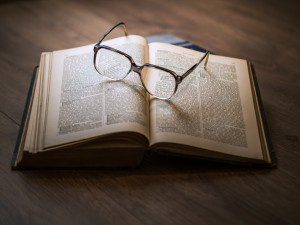 tudies took me deeper into the social world of the Bible. With an undergraduate degree in Anthropology informing my later reading, things began to make sense again. I particularly began reading about Jesus’ Jewishness, something that is often routinely ignored, making our interpretation of scripture seriously flawed.
tudies took me deeper into the social world of the Bible. With an undergraduate degree in Anthropology informing my later reading, things began to make sense again. I particularly began reading about Jesus’ Jewishness, something that is often routinely ignored, making our interpretation of scripture seriously flawed.
I stopped trying to make the Bible do something that it most definitely is not: a science textbook or a handbook on “family values.” I simply let it be what it is and the beauty of those ancient writings emerged yet once more for me.
I saw why the endless genealogies were necessary to establish the credibility of the fledgling nation of Hebrews trying to learn to worship the one true God.
I dove into the messy, violence-prone and sexually-laden stories that litter the pages of Holy Scripture and wondered at their inclusion in the holy texts.
I savored the words of the prophets as they thundered at the fat cats of their day, lamenting their unwillingness to give justice to the poor and offer open doors to the foreigners
I loved the stories of the deeply flawed characters, fumbling their way through their quests.
Many writers accompanied me along the way. Here are a few that became treasured friends:
- The Misunderstood Jew: The Church and the Scandal of the Jewish Jesus by Amy-Jill Levine.
- Without Buddha I Could not be a Christian by Paul F. Knitter.
- A New Kind of Christian: A Tale of Two Friends on a Spiritual Journey by Brian D. McLaren.
Also, I’ve found books by Kenneth Bailey and Bruce Malina to give much insight into the culture of the days when much of the Bible was written. The Gospels especially become much more alive and understandable after reading their work.
I wish you grace for your difficult journey in front of you as you shed right-wing religion and enter into the freedom of holy grace.
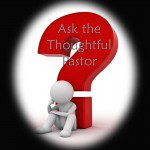 [Note: a version of this column is scheduled to run in the Sept 23, 2016, edition of the Denton Record Chronicle. The Thoughtful Pastor, AKA Christy Thomas, welcomes all questions for the column. Although the questioner will not be identified, I do need a name and verifiable contact information in case the newspaper editor has need of it. Please email questions to: [email protected].]
[Note: a version of this column is scheduled to run in the Sept 23, 2016, edition of the Denton Record Chronicle. The Thoughtful Pastor, AKA Christy Thomas, welcomes all questions for the column. Although the questioner will not be identified, I do need a name and verifiable contact information in case the newspaper editor has need of it. Please email questions to: [email protected].]


